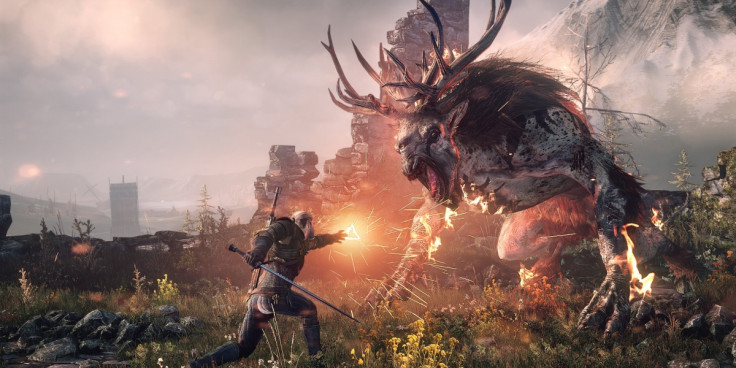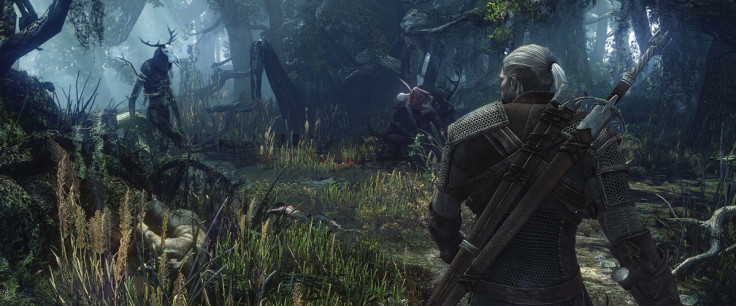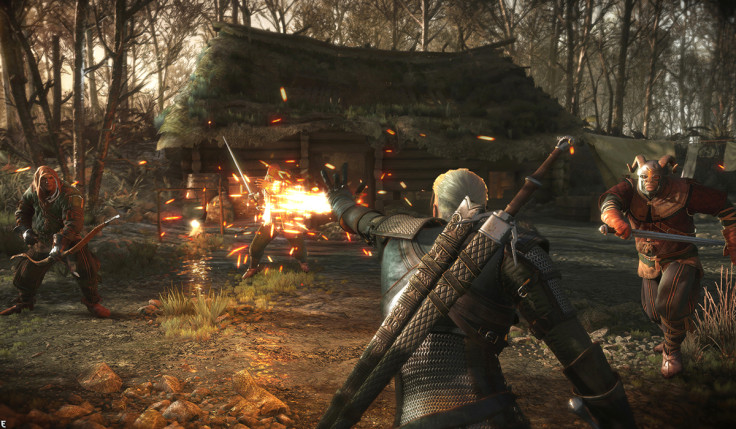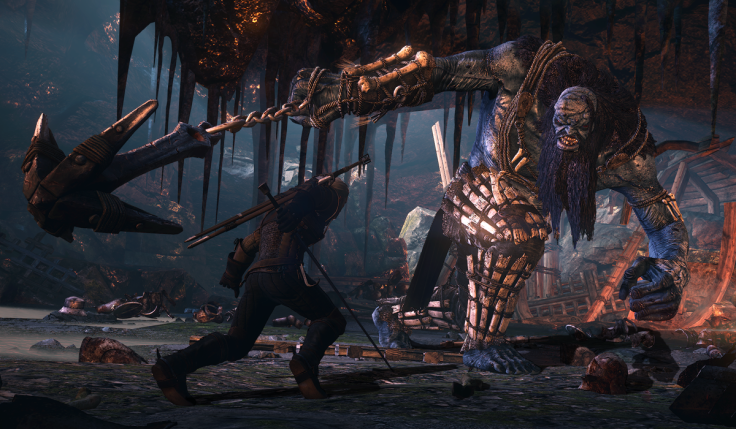The Witcher 3 interview: CEO Marcin Iwiński on sexism, free DLC and Game of Thrones

IBTimes UK sits down with CD Projekt RED's CEO Marcin Iwiński to talk about the developers' forthcoming fantasy RPG The Witcher 3: Wild Hunt.
We asked him about the comparisons that have been made to Game of Thrones and its adult themes, the series' issues with sex, the studio's decision to offer free DLC and how they developed the game's massive open world.
IBT: It's safe to say anticipation for Wild Hunt is far greater than for previous games. What are the team's feelings about that hype and how has it affected development?
Marcin Iwiński: It's very flattering and humbling at the same time. The team feels that pressure, but I think it's very uplifting and it's not a bad kind of pressure - we know we're making something really big, we have a plan and we're sticking to it. Hopefully, there will come a time for popping champagne, but it's all sweat and tears now.

How difficult is it to create an open world, and where have you looked to for inspiration?
First of all, we have a great base to draw inspiration from - the world described in books by Andrzej Sapkowski. But that's one thing, the other is actually bringing it to life the way we're doing it. To answer your question directly, it is definitely not an easy task, but we have over 10 years of experience in creating huge RPGs to back Wild Hunt up.
Both previous Witcher games have been gripping storytellers and with each game we have gained invaluable experience that has led us to where we are now. In Wild Hunt, we take our storytelling to a new level. Stories are waiting for you practically around every corner, no generic, randomly generated stuff, everything's done by hand.
We gave every character a personality, even the ones you might never see because they live somewhere deep in a forgotten forest that you might never reach while exploring the world. They'll be scoundrels or naive dreamers, they'll be old war veterans or marauders waiting for their next sea adventure, but, whoever they are, they'll always have something that grounds them in the world and makes them believable - a small story within a story.
A total contrast to the typical "sign-post NPCs" that ask you to fetch 10 wolf pelts and give you an old family heirloom they just happen to have in their pocket in return.
A lot of comparisons have been drawn between Witcher 3 and Game of Thrones due to both putting an adult twist on the genre. Is that as far as the comparison goes or is there a greater similarity?
I definitely think that, if anything, what makes Game of Thrones similar to The Witcher is the darkness of the world. It's neither the sex, nor the violence - it's the massive amount of shades of gray that make both so much, for the lack of a better word, fun. The underlying concept of both is this feeling of dog eats dog, the feeling that gold and power can buy life and death.

Fantasy tropes have been well-worn over the years. How difficult is it coming up with something fresh?
Our goal from the very beginning was not to create a game for everyone so we wouldn't have to simplify our writing, but rather go wild with wittiness, metaphors and 'read between the lines' stuff. When we started telling the story of [the protagonist] Geralt of Rivia in our first game back in 2007, what we delivered was a total novelty in the RPG gaming landscape - no fairytale-ish distinctions between good and evil, no simple 'decisions and consequences', which, as in real life, are very often not immediate and direct.
Looking at both the critics' and gamers' reactions, it was a breath of fresh air and a totally new approach. We are now taking this approach to the next level and putting it in an open world, adding an even higher level of non-linearity and the feeling of a living, breathing world, full of deep and meaningful stories.
Previous games have been criticised for their depiction of women and sex. What has been learned from that and how does has it impacted The Witcher 3?
The Witcher series definitely does show our evolution and learning path as a studio. The first game was a proving ground and we could have done a lot of things better including the depiction of sex. Having said that, take a look at The Witcher 2: Assassins of Kings and soon Wild Hunt, and you will see how we learn and develop.
From the very beginning our goal was to show the medieval world as it was. As previously mentioned, we are appealing to the mature audience and in terms of sex being part of mature world, we are not crossing any lines here, but rather trying to blend it with the story to make it more authentic and believable and show as a natural part of the world. If you look at Game of Thrones - both the books and the TV series - we are really not much different in the sexual aspect. What has changed in the last 10 years however is the way we present it, it is much more natural.

You announced that all DLC for Wild Hunt would be free, which was obviously news welcomed with open arms by the community. Do you have a particular stance on paid DLC, or was this a move made simply to garner good press?
We wanted to send a clear message that what is currently happening with DLC is, in a lot of cases, a stretch... and that's me being polite here. We are gamers and whenever we buy a full price new release, we really expect that we will not be treated like milking cows and be charged a few bucks for every tiny thing, be it a sword, horse armour or hairstyle.
The release of Wild Hunt was the best opportunity to put the money where our mouth is and show that we really mean it. We do believe that when gamers buy our game we form a long-term relation and we owe them our care and support, hence the 16 free DLCs. It is our way of saying 'thank you' for buying our game and we would love to see other companies follow this trend.
Games with moral choices have been commonplace for a while. Some succeed but others are criticised for being too binary. In my opinion Telltale's The Walking Dead gets it right because there are no right and wrong answers – there's always ambiguity and consequence. What can we expect from Wild Hunt's morality?
It is really about the consequences of such choices being meaningful. Do they create forks that branch into various sub-stories? Most importantly, as a gamer, are you left with an impression that what you've chosen really matters? Various games do it differently, but when done right, and Walking Dead is a good example, this gives gamers a feeling of accomplishment and reward.
That's our aim with Wild Hunt. We have 36 different ending states, not to mention all the smaller decisions you will make during your play-through which personalise the world and story - some of the moral choices you'll make will resonate until the very end.
The Witcher 3: Wild Hunt is out on PC, PS4 and Xbox One on 19 May.
© Copyright IBTimes 2025. All rights reserved.





















